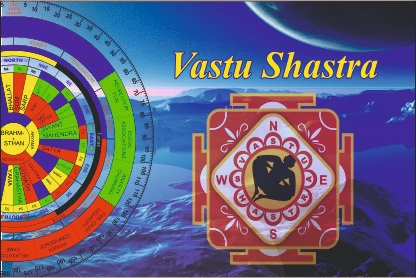-
Your shopping cart is empty!
Vastu Shastra (Basic & Advance)
Vastu is an ancient Vedic science of layout planning of buildings that has stood the test of times, influencing the peace and prosperity of the inhabitants. Vastu science does not find its roots in astrology but is a science which deals with the management of cosmic energy in Building & Structures. It has a strong scientific base and is not a myth.
In modern times, the knowledge of house building technology has grown so vast, that it has been branched off into special fields such as architecture, engineering, and interior decoration. Architecture deals with internal comfort and external beauty, civil engineering deals with structural stability but Vastu provides the knowledge to be adopted in building a house so as to make the native happy, healthy and prosperous.

Course details:-
| Course:- | Certificate |
|---|---|
| Duration:- | 3-4 Months (Approx) |
| Eligibility:- | Pass in Class X or XII from a recognized board. |
| Course Fee:- | ₹21,000/- |
| Mode of Course:- | Both (Online/Offline) |
| Top Job Prospects:- | Vastu Expert, Vastuist, Vastu Consultant, Vastu Teacher |
| Average Salary:- | ₹30,000/- to ₹1,20,000/- |
Nature and Goal of Course
For those who have differently approaching Vedic and Advance Vastu, this correspondence keys for unlocking its language and its methodology, both in terms of the house conditions and the application of remedial measures.
The goal of this course is to provide a good foundation for Vedic and Advance Vastu. The main objectives of our institute are to teach the fundamentals of Vedic and Advance Vastu and house conditions through the foundation, grah-aarambh, grah-pravesh, Vastu puja, Vastu dosh upaay. And how to balance five elements, 16 directions, 32 gates, 45 devta, Brahm-sthan.
Vastu & Advance Vastu, which is also known as Vedic or Modern Vastu were called as science of architecture in the Vedic era. Vastu Sastra represents a body of ancient concepts and knowledge to many modern architects, a guideline but not a rigid code. The square-grid mandala is viewed as a model of organization, not as a ground plan. The ancient Vastu Sastra texts describe functional relations and adaptable alternate layouts for various rooms or buildings and utilities but do not mandate a set compulsory architecture. the mandala is a guideline, and employing the mandala concept of Vastu Sastra does not mean every room or building has to be square. The basic theme is around core elements of central space, peripheral zones, direction with respect to sunlight, and relative functions of the spaces.
Required Documents:-
- 10th/12th/Graduation Certificate
- 2 Passport Size Photographs
- Aadhaar Card or Any One Address Proof (Like: - DL/Voter Card/Passport)
